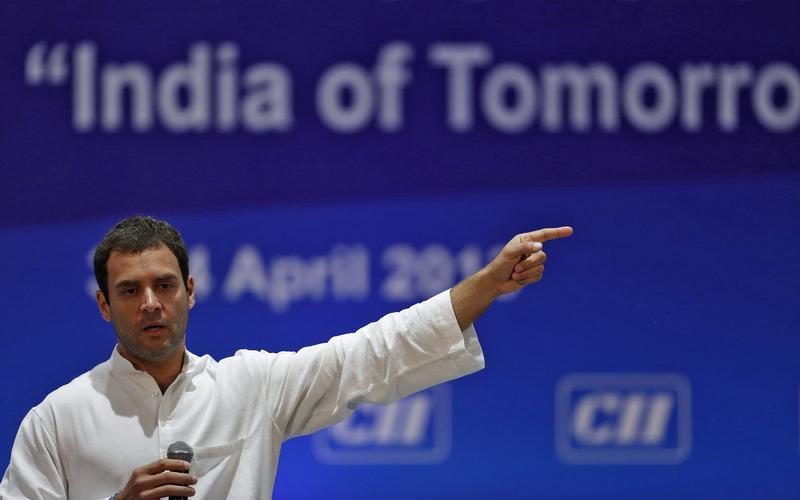“For getting a complete view of the picture, we cannot look at a part of it…We want healthy criticism, and I have myself indulged in a fair amount of criticism of my colleagues.”
~ Jawaharlal Nehru, Presidential Address, Madras,1939
A recent article made much of a ‘paradigm shift’ in the Congress as it looks to recruit young people in a quest to move away from its dynastic image. In recent years, many people have criticised the Congress for its dynastic culture and lack of a distinctive ideology, which have contributed to the party’s image as inaccessible, elitist and ideologically stagnant.
However, Rahul Gandhi plans to change all that with a new fellowship programme. The Future of India Fellowship aims to reposition the Congress as a socially liberal, politically plural, meritorious organisation for India’s youth.
Unfortunately, my own experiences with a similar programme have left me sceptical of any ‘paradigm shifts’ in the Congress.
“It is for you, the youth of the country, to appreciate the new forces and ideas that are convulsing the world and to apply them to your own country.” ~Nehru, presidential address to the All-Bengal Students Conference, Calcutta, 1928
In April this year, the Indian Youth Congress (IYC) was one of the many organisations to invite summer internship applications from my university. Intrigued, I attended an interactive session hosted by the All India Congress Committee’s joint secretary and person in-charge of the IYC, Krishna Allavuru. I was hoping he’d answer some of my questions about the INC’s failure to put up an effective opposition to the ruling government. I was hoping for frankness, but got old platitudes instead. My question about the INC’s ideology only elicited “NREGA” as an answer. Disappointed but not yet disheartened, I went for the internship interview anyway.
There, I was informed that Allavuru had to leave because of “other commitments” and I’d be interviewed by a panel of three other INC members, comprising people from their media and social media teams and a spokesperson for the IYC.
Since I’d applied for a research position, I carried papers I’d written on history, politics and policy alongwith an essay that was part of the IYC application. However, the things I’d consider relevant never even came up during the interview.
Here’s a list of questions I was asked by the panel:
- “So Sparsh, tell me everything about you: who is your father; what does he do; where are you from; what is your family background?”
- “Did you ask the question about political managers? (I hadn’t) The rest of this question was incoherent…
- “How will you benefit from us and how will we benefit from you?”
Reluctantly, I answered the first question after they insisted that I disclose information about my father, almost as though they were interviewing him instead of me. As I was struggling to understand the second question, the interviewer tried to articulate what he meant, but failing, moved on to the next question.
For the third, I told them about my interest in researching the ideas that informed Gandhi, Nehru, Gokhale, Bonnerjea and others. I described my interest in creating a new communication strategy to counter Hindutva – something that would be beneficial to the INC right now. The response I got was, “No, that’s all ok, but how will we benefit?”
“This Congress is simply fading away before our eyes. Even a fading might have been tolerated, but something worse in happening. There is no discipline left, no sense of common effort, no cooperation, no attempt at constructive effort (apart from a few), and our energies are concentrated in disruption and destruction.” ~Nehru, in a letter to Rajendra Prasad, 1949
Was this the party that Nehru had spoken about? Where nobody was interested in my skill set or what I studied; but only on my socio-economic background? Where the person in charge of the IYC had commitments that were more important than actually interviewing potential members from the exact demographic his party is focusing on.
To me the INC isn’t really shifting any paradigms, it’s paying lip service to meritocracy by instituting cosmetic changes that include making a big deal out of “smaller cities” over those who attended “foreign universities”. If you still have to ask me what my father does, then you’re still focused on my family, not my individual merit.
Simply choosing people from “non-dynastic” backgrounds alone won’t solve the party’s problems. For one thing, it doesn’t account for the very real economic constraints most young people in the country face. Both the internship and the new fellowship are unpaid – what happens to candidates who can’t afford to work for free?
“Many of the giants of old are not with us and we of a later day, standing on an eminence of their creation, may often decry them or the great work they did in laying the foundations of a free India.” ~Nehru, presidential address, Lahore, 1929
Gandhi’s attempt to bring in young blood may be well intentioned, but it is not well implemented. Instead of harping on about doing away with dynasticism, the party needs to focus on rediscovering its roots.
The INC is trying to correct its nepotism problem by completing sidelining candidates who are even remotely politically connected. Instead, the party should return to its roots and reach out to interested and talented people, irrespective of their backgrounds.
I hope that the Congress moves beyong this anti-dynaticism rhetoric and actually starts working towards it.
As Nehru said in a 1951 interview, “We are – well, in search of a soul. That sounds rather metaphysical, but I am not, of course, discussing metaphysical matters.”
Sparsh Agarwal is an undergraduate student at Ashoka University studying political science and foreign relations.
Featured image credit: Reuters

